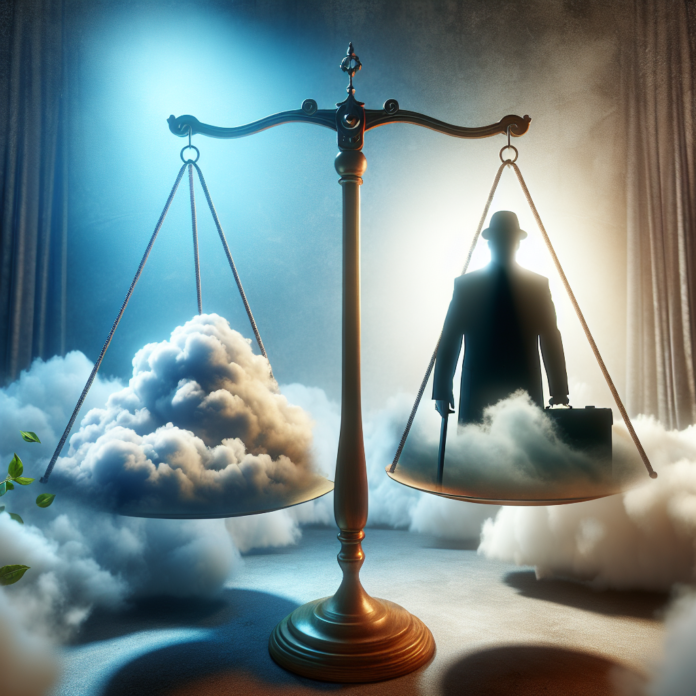The Moral Dilemma of Catholic Support for MAGA Conservatism: A Journey Through Tradition and Transformation
In the ongoing discourse of American politics, few topics invoke as much passion and controversy as the Catholic Church’s relationship with the MAGA (Make America Great Again) conservatism. Rooted in a complex web of historical traditions, moral teachings, and contemporary socio-political dynamics, this alignment raises a moral dilemma that challenges the very fabric of faith and conscience among Catholics.
At the crux of this issue lies the juxtaposition of two distinct interpretations of Catholic doctrine. On one side, there is a traditionalism that clings to an era long past, finding solace in the Latin Mass and rigid moral codes. On the other, there exists a call for progressive values, vocalized and embodied by figures like Pope Francis, advocating for social justice, environmental stewardship, and inclusivity.
The historical context is essential for understanding this cultural schism. Since its inception, the Catholic Church has often been perceived as a bastion of conservatism, cautious and slow to embrace change. The Latin Mass, a symbol of orthodoxy, exemplifies this sentiment. For centuries, this ancient liturgy has been a touchstone for traditionalists, embodying a sense of continuity with the past. However, it was the Second Vatican Council (1962-1965) that marked a significant shift in the Church’s trajectory. The Council’s decisions—permitting the Mass to be celebrated in vernacular languages, promoting ecumenism, and championing a renewed focus on human rights—were harbingers of the progressive vision now championed by Pope Francis.
Pope Francis, who ascended to the papacy in 2013, represents a stark departure from his predecessors in his approach to social and environmental issues. His encyclical, Laudato Si’, calls for urgent action on climate change, situating environmental stewardship as a core moral issue. Moreover, his papacy has been marked by a profound commitment to addressing poverty, inequality, and the plight of migrants—issues that are often brushed aside by MAGA conservatism.
MAGA conservatism, with its roots in nationalism, economic deregulation, and stringent immigration policies, contrasts sharply with the progressive ethos advocated by Pope Francis. The irony lies in the considerable support that this political movement garners from a substantial portion of the Catholic laity, particularly from those who adhere to traditionalist views. This alignment, however, poses a profound moral and theological dilemma.
Traditionalist Catholics find common ground with MAGA conservatism through shared stances on issues like abortion and religious freedom. The pro-life stance is undoubtedly a core tenet of Catholic doctrine. Yet, this narrow focus often eclipses the broader spectrum of life issues emphasized by Pope Francis, such as the death penalty, healthcare, and social equity. The moral language of Catholicism, when confined to singular issues, risks becoming a tool for partisan objectives rather than a holistic guide for ethical living.
Furthermore, the nostalgic yearning for a return to traditional values and the Latin Mass can be seen as an ideological parallel to the MAGA slogan, "Make America Great Again." Both reflect a desire to revert to a perceived golden age, often overlooking the complexities and injustices of the past. While there is a place for tradition, an uncritical embrace of it can hinder the Church’s ability to respond to present-day challenges with compassion and authenticity.
Pope Francis’s approach to inclusivity stands in stark contrast to the often exclusionary rhetoric associated with MAGA conservatism. The Pope’s famous remark, “Who am I to judge?” regarding LGBTQ individuals, underscores a pastoral approach that prioritizes understanding and compassion over doctrinal rigidity. This inclusive vision is at odds with the divisiveness that marks much of contemporary political discourse, including the tendencies of MAGA conservatism to marginalize certain groups.
The moral inconsistency extends to economic policies as well. MAGA conservatism’s emphasis on deregulation and tax cuts for the wealthy is incongruent with Catholic social teaching, which calls for a preferential option for the poor. The economic policies championed by MAGA conservatism often exacerbate inequality, undermining the very principles of human dignity and solidarity that are foundational to Catholic doctrine.
The culture surrounding the Latin Mass also plays a role in this moral quandary. While it offers a deeply spiritual experience for many, it can sometimes become a refuge for those resistant to the Church’s progressive movements since Vatican II. The rigid adherence to ancient liturgical forms can foster a culture of exclusivity, alienating those who seek a more inclusive and contemporary expression of their faith.
In this intricate landscape, the challenge for Catholics is navigating the moral tension between traditionalist inclinations and the progressive imperatives articulated by Pope Francis. It calls for a reevaluation of what it means to live out one’s faith in the modern world. Embracing a more comprehensive and compassionate interpretation of Catholic social teaching, as advocated by Pope Francis, calls for courage and humility. It challenges Catholics to extend their moral concern beyond single-issue politics to address the broader and interconnected dimensions of justice, mercy, and human dignity.
In conclusion, the alignment of Catholic support for MAGA conservatism presents a profound moral dilemma that transcends simple political affiliation. It calls into question the very essence of Catholic identity and the role of tradition in a rapidly changing world. By embracing the progressive values espoused by Pope Francis, Catholics can navigate this moral impasse, fostering a faith that is not only resilient but also profoundly relevant to the ethical challenges of our time.
